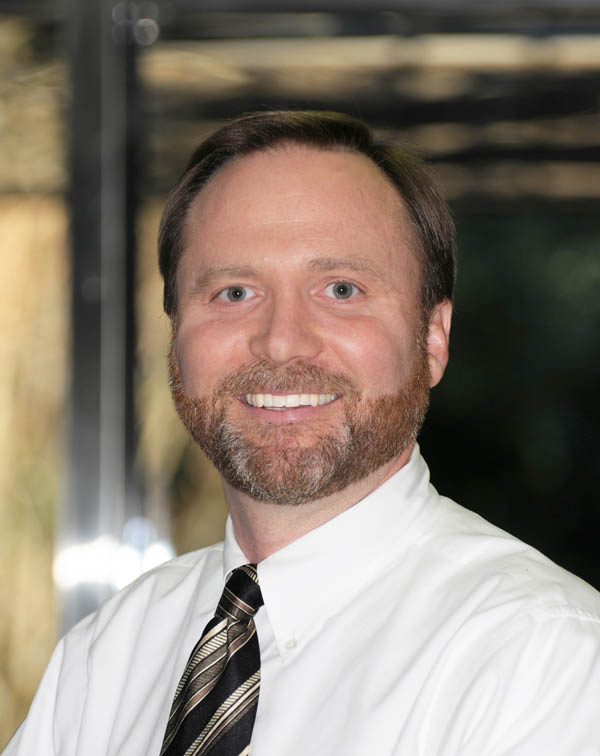ACS CAN’s Conversation with Breast Cancer Researcher, Dr. Lance D. Miller

Dr. Lance Miller loves discovery.
As a child growing up in South Carolina, he fancied himself as an amateur paleontologist, digging for fossils in search of clues from the past.
Today, he’s still digging, but with a far different and lifesaving focus. Rather than seeking bones from the dinosaurs that died centuries ago, he’s digging into human genes for clues to explain why some cancers are more aggressive than others – clues that may one day save more women from breast cancer.
Where He Works
Dr. Miller runs a research lab associated with the Wake Forest University Comprehensive Cancer Center in Winston-Salem, North Carolina. His team focuses on mechanisms of cancer progression and biomarker development while also collaborating with a larger group of researchers stretching from the United States to New Zealand. Together, their “team science” approach includes breast cancer researchers, basic scientists, clinicians, mathematicians, bioinformaticians (who study genomic data) and more.
How He’s Helping Save Lives from Breast Cancer
Immunotherapy is the hottest topic in cancer research. Considered a major breakthrough, it uses a patient’s own immune system to fight their cancer.
Today, however, immunotherapy works for only a small fraction of breast cancer patients. Doctors still don’t know which patients it works for and why it works for some patients and not others. The result is that this revolutionary treatment is not routinely offered to women with breast cancer.
Dr. Miller and his associates are playing a leading role in driving a more thorough understanding of how biomarkers and genomics can lead to better treatment decisions and increased use of immunotherapy for breast cancer patients.
The Role of Federally Funded Research in His Work
“With federal grant money, we can determine how best to translate our research into clinical practice that will benefit patients,” Dr. Miller told us. “It could result in a commercial test given to a patient at the time their tumor is biopsied to determine whether they should get immunotherapy. Such a test would bolster the use of immunotherapy for those breast cancer patients likely to benefit, while sparing those unlikely to benefit from an ineffective treatment.”
The Potential Impact of Cuts to Federal Research Funding
“It took us a couple years to set this in motion - and now we have it up and running,” Dr. Miller said. “Our progress would be severely dampened without federally funded research dollars.”
Outside the Lab
His love of the outdoors didn’t end once he moved from fossils to genes, as Dr. Miller and his family still love exploring and traveling, especially along the east coast. His family, including his wife, Julie, and their two teenage daughters, and son, also lived in Singapore for seven years when Dr. Miller joined his PhD mentor, Edison Liu, in establishing the Genome Institute of Singapore.
